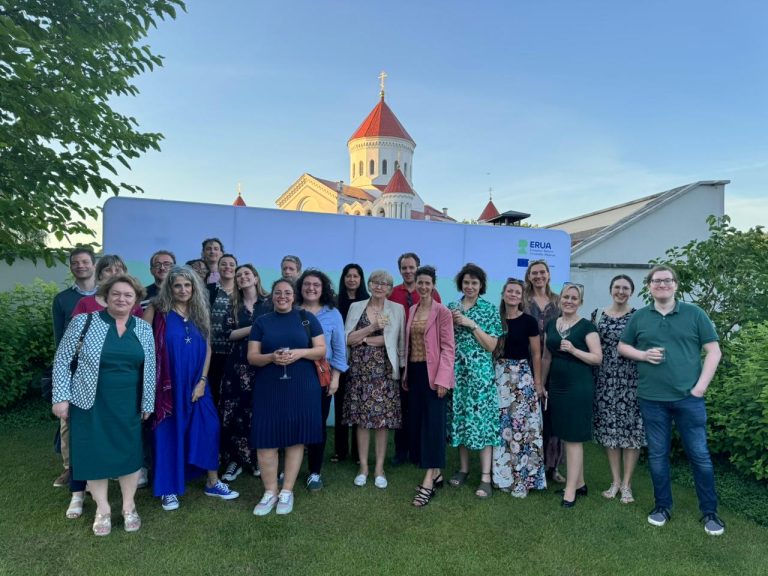Please tell us shortly about Re:ERUA Project’s main outcomes?
Over the past three years, ReERUA has focused on promoting engaged research to help shape ERUA’s long-term strategy. These outcomes include: promoting open science, enhancing human capital and promoting gender diversity. The project emphasises responsible research that considers social impact, care ethics and epistemic justice, while improving collaboration for socially impactful outcomes. ReERUA has also strengthened administrative cooperation between research support services and conducted mapping activities to assess research potential and infrastructures, resulting in tools such as the ERUA research portal. ReERUA has also created open access courses on gender innovation and open science. I invite you to take a look at our Re_ERUA Final Report
What where the main topics of research and which teams took part in them?
ReERUA, with the support of two expert groups and the Scientific Council (comprising researchers from partner universities as well as external stakeholders), has developed expertise on topics such as responsible research and innovation under the ethics of care and epistemic justice, while promoting forms of experimentation in the field of research evaluation. We have also worked on participatory research protocol with the contributions of researchers affiliated to the Museum National d’Histoire Naturelle and developed expertise in ethical research collaboration.
How do the results or Re:ERUA impact or will impact the work of ERUA in the future?
The work of ReERUA has been fundamental in shaping the long-term strategy of ERUA. In particular, ReERUA has fostered initiatives for the whole Alliance such as ERUA’s involvement in the following efforts:
– Reforming research assessment through a prospective joint membership and contribution to CoARA (Coalition for Advancing Research Assessment)
– Continuing to strengthen administrative cooperation on research funding across the Alliance
– Promoting HRS4R (Human Resources Strategy for Researchers) labelling for all ERUA universities.
– Developing and implementing ReERUA’s Responsible Research and Innovation approach (under the ethics of care) and promoting forms of epistemic justice in all research initiatives across the Alliance.
What would you say to all who participated to this project?
I would like to express my deepest gratitude and admiration. Your dedication, expertise and cooperative spirit have been invaluable in moving this project forward. Each contribution played a vital role in achieving our goals.
How do you personally feel after the launch of the research portal and all the efforts of your team?
We are very excited: the Research Portal is a crucial tool for improving collaboration within our Alliance, allowing us to create an accurate map of our research potential, especially with a view to forming research clusters. The development of the Research Portal has been a long and arduous process, requiring the cooperation and coordination of many people and different areas of expertise, and overcoming many obstacles. I would also like to emphasise that the development of the Research Portal is the result of tireless collaboration between Paris 8 and the NBU, in a true team spirit that reflects the spirit of the ERUA. However, the work is not yet finished. The teams have been working tirelessly to improve the quality of the data and to allow new partners to join the Research Portal.

